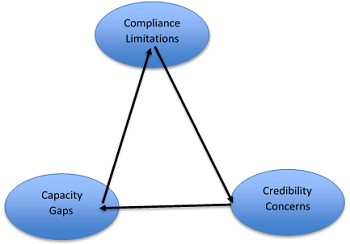Vol 5 No 2 (2025)
Case Study
This study evaluates the preparedness of Gambian state-owned enterprises (SOEs), with emphasis on the National Water and Electricity Company (NAWEC), to adopt sustainability disclosures consistent with international Environmental, Social, and Governance (ESG) standards. Employing a qualitative case study approach, the research combines documentary analysis with 20 semi-structured interviews involving SOE executives, government regulators, and independent auditors. The analysis applies a three-dimensional framework capacity, compliance, and credibility to assess institutional readiness. Results indicate systemic limitations: institutional capacity is constrained by the absence of dedicated ESG units, fragmented information systems, and insufficient staff expertise; compliance is weakened by the absence of statutory reporting obligations, producing donor-driven and selective disclosures; while credibility is undermined by weak verification practices and the lack of third-party assurance. These deficiencies interact in a reinforcing cycle, perpetuating low-quality reporting and eroding stakeholder trust. Theoretically, the study contributes by integrating stakeholder and legitimacy perspectives into a context-specific model for understanding ESG reporting in low- and middle-income countries (LMICs). Practically, it highlights the need for phased legal mandates, capacity development in human resources and digital infrastructure, and the introduction of limited-scope assurance to enhance disclosure quality. The findings demonstrate that improving ESG reporting in The Gambia not only strengthens accountability and transparency but also positions SOEs to access sustainable financing and align with global governance reforms. This research represents the first empirical assessment of ESG reporting readiness in The Gambia, offering insights that extend to similar LMIC contexts where institutional frameworks remain underdeveloped.



 Lamin K. Drammeh, Driana Leniwati
Lamin K. Drammeh, Driana Leniwati
